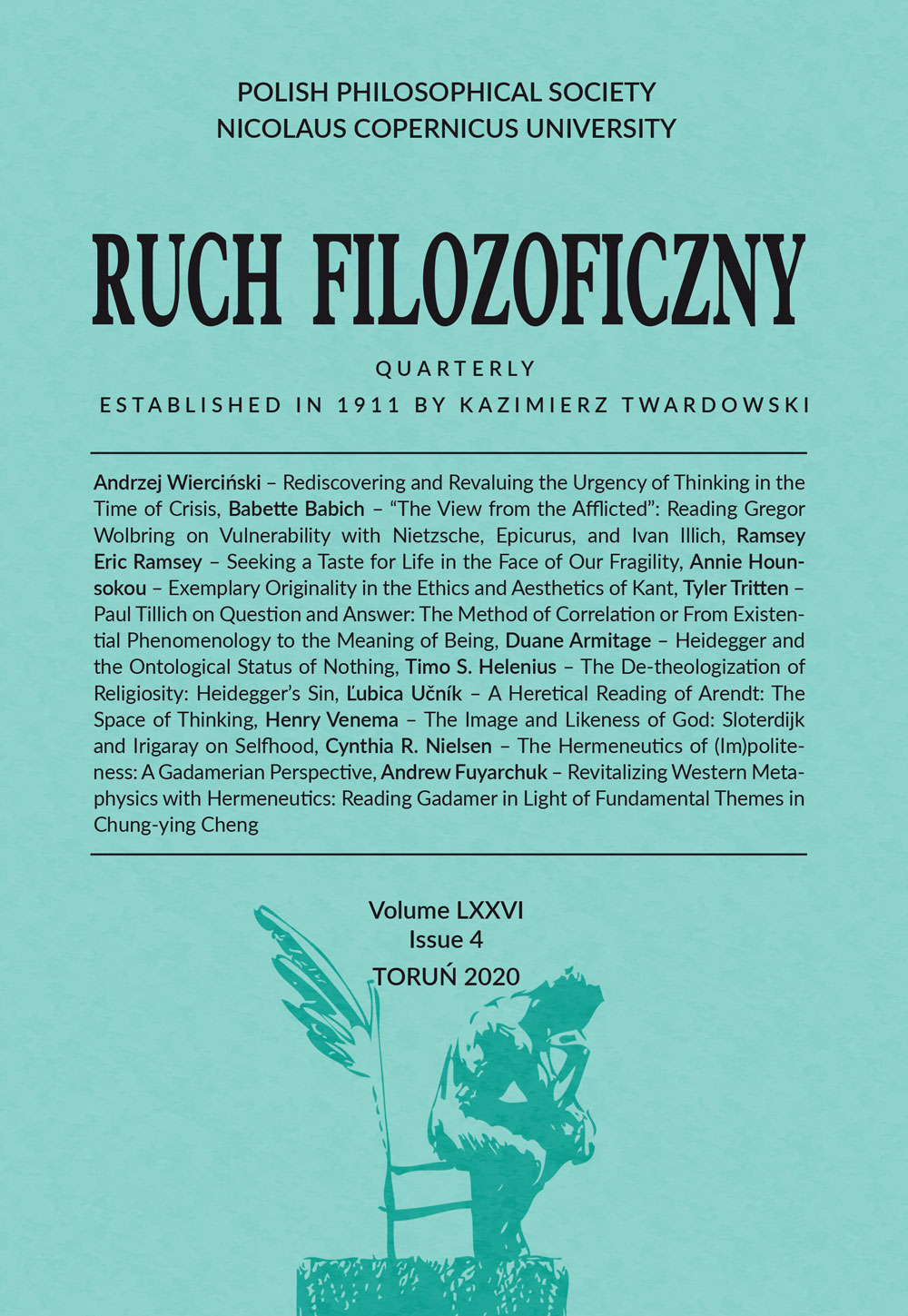The Hermeneutics of (Im)politeness: A Gadamerian Perspective
DOI:
https://doi.org/10.12775/33069Keywords
Gadamer, philosophical hermeneutics, dialogue, openness, hermeneutic virtue, politenessAbstract
Central to Gadamerian hermeneutics is dialogical engagement, a back and forth “play” (Spiel) among interlocutors. For Gadamer, texts as well as works of art function as interlocutors capable of addressing and making a claim upon us. However, whether engaging a human dialogue partner or a text, one must approach the other with openness, which can be understood as a hermeneutic virtue. Consequently, in order for a fruitful dialogue to occur, one must embody specific comportment to the other. In this sense, hermeneutics exhibits politeness of sorts. If one considers the Latin roots (politus, polire) from which we derive our English term “polite,” relevant connections with the notion of refinement and being “polished” emerge. That is, to be polite is in some sense to exhibit refinement, which often comes through a process of training or even suffering. One the one hand, openness to the other involves politeness or refinement in that one demonstrates respect for the other in a genuine willingness to hear the other’s view. Such refinement has been achieved through experience (Erfahrung) and continues to be achieved through dialogical engagement with others. On the other, it is also the case that hermeneutical dialogue involves elements of impoliteness, where one transgresses social norms in order to provoke a thoughtful, self-reflective response.
References
Aristotle. 2001. The Basic Works of Aristotle, ed. Richard McKeon. New York: The Modern Library.
Caputo John D. 1987. Radical Hermeneutics, Repetition, Deconstruction, and the Hermeneutic Project. Bloomington: Indiana University Press.
Davey Nicholas. 2006. Unquiet Understanding. Gadamer’s Philosophical Hermeneutics. Albany: SUNY Press.
Gadamer Hans-Georg. 2004. Truth and Method, 2nd ed., transl. and revised by Joel Weinsheimer and Donald G. Marshall. New York: Continuum.
Gadamer Hans-Georg. 1975. Hermeneutik I: Wahrheit und Methode: Grundzüge einer philosophischen Hermeneutik, Gesammelte Werke Band 1, 4. Auflage. Tübingen: J. C. B. Mohr (Paul Siebeck).
Grondin Jean. 2003. The Philosophy of Gadamer, transl. Kathryn Plant. Ithaca: McGill-Queens University Press.
Plato. 1997. Republic. In: Plato. Complete Works, ed., with introduction and notes, by John M. Cooper, transl. Georges Maximilien Antoine Grube et al., 971–1223. Indianapolis–Cambridge: Hackett Publishing Company.
Risser James. 1997. Hermeneutics and the Voice of the Other. Re-reading Gadamer’s Philosophical Hermeneutics. Albany: SUNY Press.
Downloads
Published
How to Cite
Issue
Section
Stats
Number of views and downloads: 501
Number of citations: 0



